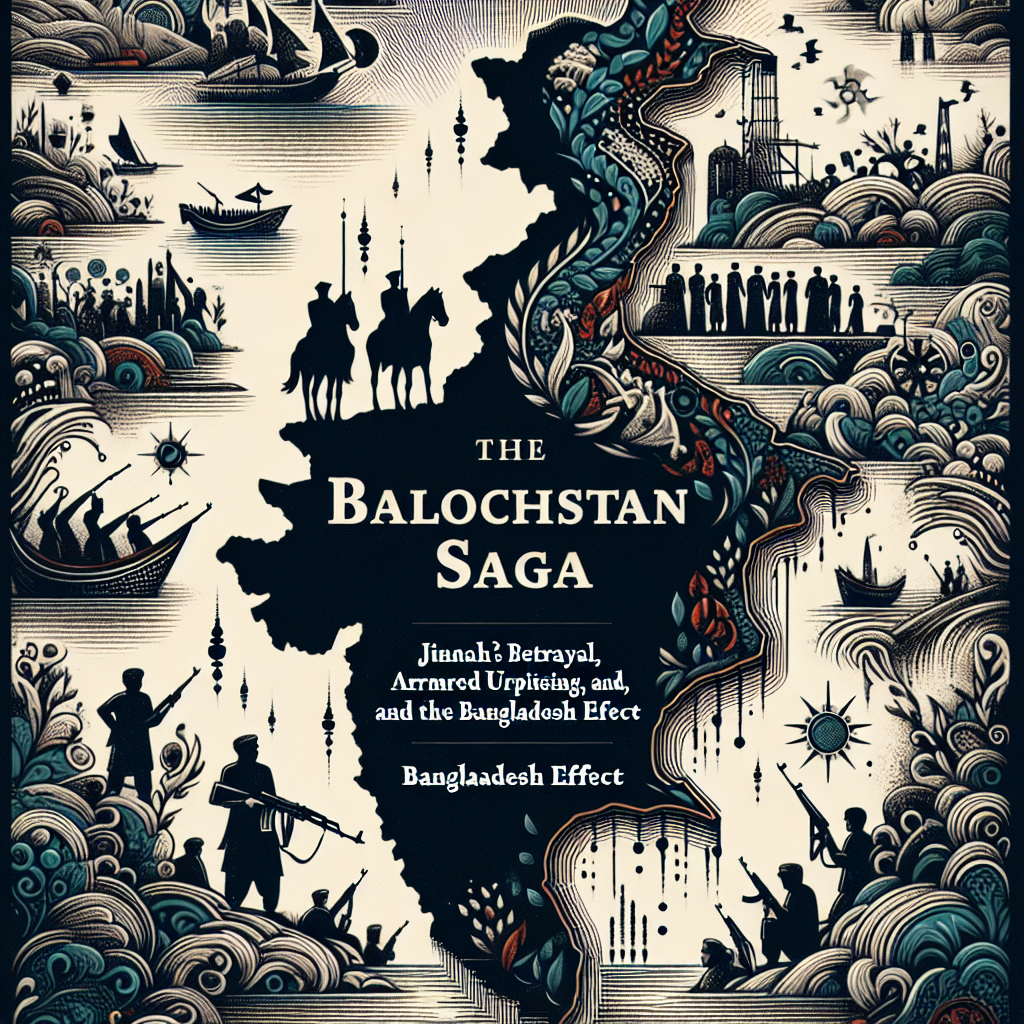The Balochistan Saga: Jinnah’s Betrayal, Armed Uprising, and the Bangladesh Effect
The Balochistan Saga: Jinnah’s Betrayal, Armed Uprising, and the Bangladesh Effect
Introduction
The Balochistan saga is a complex narrative of political betrayal, armed resistance, and regional implications reminiscent of the Bangladesh Liberation War. This story unfolds in the southwestern province of Pakistan, where historical grievances have fueled a persistent struggle for autonomy and recognition.
Jinnah’s Betrayal
At the heart of the Balochistan issue lies the perceived betrayal by Pakistan’s founding father, Muhammad Ali Jinnah. The Baloch leaders initially sought a degree of autonomy within the newly formed Pakistan, but their aspirations were met with resistance and eventual annexation.
- 1947: Balochistan’s leaders hoped for autonomy post-independence.
- 1948: Jinnah’s government annexed Balochistan, sparking discontent.
- The annexation is viewed as a betrayal of initial promises.
Armed Uprising
The annexation led to a series of armed uprisings as Baloch nationalists sought to reclaim their autonomy. These uprisings have been marked by cycles of violence and repression.
- 1958, 1973, and 2004: Major insurgencies erupted in Balochistan.
- Demands include greater political autonomy and control over resources.
- Government responses have often been military in nature, exacerbating tensions.
The Bangladesh Effect
The situation in Balochistan draws parallels with the Bangladesh Liberation War of 1971, where cultural and political suppression led to a successful independence movement. The “Bangladesh Effect” in Balochistan refers to fears of a similar secessionist outcome.
- Shared grievances of political marginalization and cultural suppression.
- Concerns over human rights violations and military crackdowns.
- Potential for international attention and intervention, as seen in Bangladesh.
Conclusion
The Balochistan saga is a multifaceted issue rooted in historical grievances and ongoing struggles for autonomy. The narrative of betrayal, armed resistance, and the looming “Bangladesh Effect” underscores the need for a nuanced and empathetic approach to resolving the conflict. Addressing the core issues of political representation and resource control is crucial for lasting peace in the region.






































